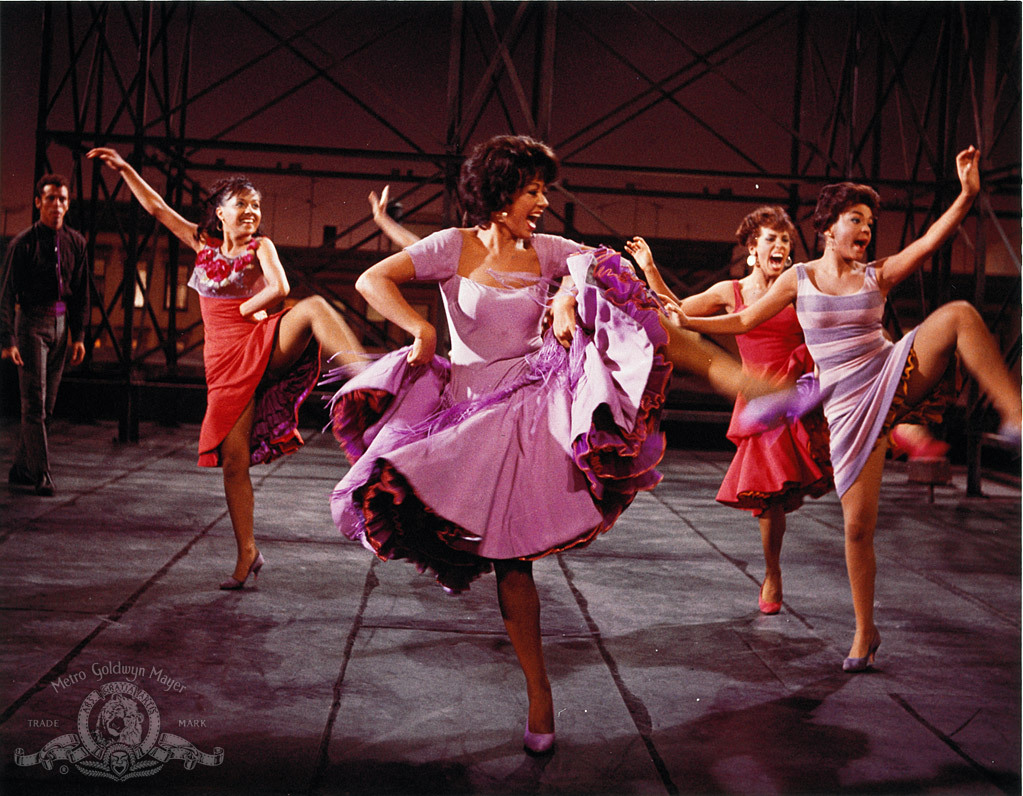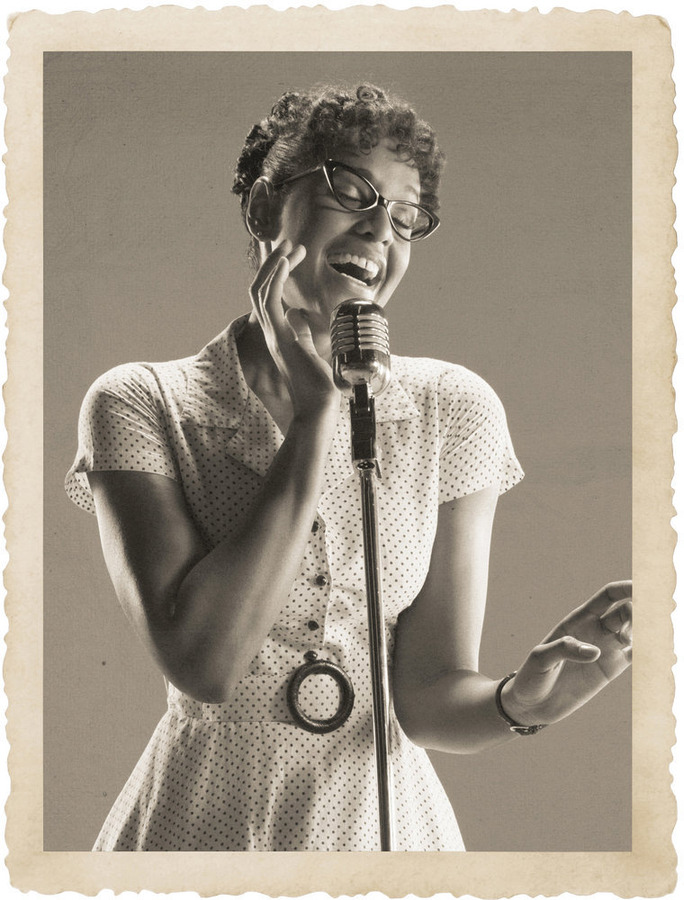The good and bad of Hollywood’s Latinx representation

Hollywood’s lack of proper Latinx representation has had negative social, emotional effects on Latinx viewers.
Growing up, Rodriguez said she “internalized a lot of racist views and ideals” from the media she consumed.
“It warps your world view. I didn’t want to be like my ‘ghetto’ relatives. Not when my white step-family was so much more seemingly classy, and right. Spanish was something maids and land workers spoke, so I didn’t have interest in speaking it, and my mother was reluctant to teach it to me because growing up with Spanish as her first language made life difficult for her and her family,” she wrote.
“Poor representations can lead to harmful internalized ideals about your community and a lot of internal self-hatred for one’s racial and ethnic identity. It takes time and effort to unlearn those beliefs and behaviors. To begin to take pride in your identity as a non-white person,” she wrote. “And once you do it’s not easy, because ‘easy’ is taking scraps from those in power. It was easier to be a colorblind teenager because my majority white town was colorblind. Staying with the status quo was a form of protection, and the media only enforced that image by showcasing Latinxs – in my case – in a negative light.”
Rodriguez said three movies that “greatly impacted” her view of being Latina as a child was Lopez’ Maid in Manhattan, The Wedding Planner, and the film that made Lopez a movie star, Selena.
“In Maid in Manhattan, she’s a maid who only finds success after finding love with a white man. In The Wedding Planner, the rejection of her Latina identity provided her with success. In Selena, while a great biopic on the real life Selena Quintanilla, she dies. The two times I grew up seeing Lopez play a Latina woman, she’s a maid, or she was murdered,” she said, adding a reference to another film that impacted her, West Side Story. “In West Side Story, a film my Mamita would say ‘was about us,’ the only Latina character played by an actual Latina actress, Anita, ends up alone after her lover is murdered and is sexually assaulted. She’s the best character in the entire film, but she has the most tragic ending of all the characters.”
Hoyos highlighted that poor representation limits Latinx and non-Latinx viewers from experiencing the richness and diversity of Latin America.
“Latino, Spanish, and Hispanic [the definitions are] very blurred and used interchangeably when they’re very different geographically and culturally and obviously ethnically,” said Hoyos. “I feel like when Hollywood picks Latina, they’re thinking the dark hair, thick accent, light-skin…or the central or South American, Mexican sort-of type. Those are the two defaults. I think that whatever that is just a blatant lack of information and just lack of research as a whole.”
Martinez also talked about how bad stereotypes and a lack of Latinx representation only harm Latinx and non-Latinx people in more ways than just in the media.
“…[W]hat is currently being shown… is harmful because a white person may come up to someone who visibly looks Latino to them and say, ‘Oh hey, ese.’ This [Latino] person is not Mexican or this person doesn’t even use that word,” she said. “It comes down to how other people are interacting with Latinos because they might see it in a certain way and think it’s appropriate, but that’s not just the case. There needs to be a greater representation, starting with the writers’ room. I know there are [diversity and representation] programs, but there needs to be more work done on that end.”

However, there is some positive momentum happening in terms of better roles for Latinx actors, as well as a better focus on fixing Hollywood’s internal issues.
“It’s extremely isolating and alienating to grow up and not see yourself accurately represented in media if you’re even represented at all. It makes you feel like a spectator to your own culture and world and that your role/voice matters less,” wrote Maravilla. “While I have spent time thinking about it and have definitely always noticed the lack of representation, I don’t think I quite understood how powerful it was even for myself until somewhat recently. My eyes welled up with tears when I saw the trailers for Star Wars: The Force Awakens and saw Oscar Isaac in the cockpit of an X-Wing. I had spent so much of my childhood riding a bike pretending that I was an X-wing pilot despite none of them being Latinx, and now, not only was there one, but the consensus was that he was daring, dashing, handsome and brave.”
“I really have to give Disney and Lucasfilm credit in pushing the kind of roles Latinx actors are considered for. Both Oscar Isaac and Diego Luna were cast as dashing pilots with leadership skills and smart senses of humor,” he wrote. “Growing up, I enjoyed watching Robert Rodriguez’s El Mariachi trilogy with my dad. It was a cowboy type action story in the vein of the Sergio Leone/Clint Eastwood films, but the Mexicans in these films were the heroes instead of just the villains. I wish those films had done more to break some of the other stereotypes that are depicted, but I still look back on those memories with my dad fondly.”
Novondo also mentioned the Star Wars franchise as a place with positive Latinx characters.
“Rogue One with Diego Luna—that movie was so diverse and they got that right,” she said, also mentioning Gina Rodriguez’s performance on the CW’s Jane the Virgin. “With Gina Rodriguez, she’s setting a platform for us and opening up doors that weren’t open before. This year alone, I had two auditions for CW shows and I have a lot of that to thank to Gina Rodriguez. [they’re more open]. We’re getting there little by little, but we need to be louder about it.”
Rodriguez chimed in on the Star Wars and Jane the Virgin love as well as positive representations in other mediums.
“Renee Montoya is an excellent Latina comic book character who’s also a lesbian. One of the few available for queer Latinx youth in terms of media. Jane the Virgin has its problems, but overall showcases a generational Latinx family in a complex and layered light,” she wrote. “Tyler Posey gets to play hero on MTV’s Teen Wolf, and even though the show has questionable quality being able to see a Latino character be the hero is powerful. Similarly, with seeing Gabriel Luna playing the complex anti-hero of Robbie Reyes on Agents of S.H.I.E.L.D. Star Wars: The Force Awakens and Rogue One feature two separate Latino actors – Oscar Isaac, and Diego Luna – in high profile roles completely outside of stereotypes in a high science fiction fantasy setting. Which is an extreme rarity.”

Martinez referenced diversity programs at major networks like NBC, ABC, and CBS, as well as grassroots movements like The Black Latina Movement created by actress Crystal Roman. “She was constantly going for roles and she was facing some of the issues we’re talking about today,” she said, adding that The Black Latina Movement has created several plays that tour around the country.
“As far as effective representation, Celia—a lot of people have been telling me, ‘Why haven’t you watched this?’” she said, referencing Telemundo’s show dramatizing the life of internationally-known Cuban singer Celia Cruz. “To be honest, that’s as close as I’ve seen it as far as effective representation and also [Jeimy Osorio, who plays a younger Cruz], was the first black Latina actor to be on a major Latina-focused magazine, Vanidades…and that was definitely due to the work she was doing on Celia.”
However, there are definitely still large areas of improvement. One area has been highlighted by the upcoming Disney-Pixar film Coco, which focuses on Mexico and Dia de Los Muertos. Novondo wishes the company—and other studios in Hollywood—would expand their focus.
“It’s nice that Latinos are being included in media…but it’d be nicer if [studios would] include other places—South America, Central America, etc.—we’re not all Mexican,” she said.
I definitely think there’s been a lot of movement…but I haven’t been seeing any concrete steps,” said Hoyos. “I know the BAFTAs…unveiled a new [rubric] in terms of the types of films they’ll be accepting for award approval, and that’s just pushing for diverse creators both on screen and also off. I think that’s something great that’s going on in the UK, but in terms of Americans, I’m not seeing huge waves except for hashtags, like #OscarsSoWhite, which I think is incredible, but it’s also difficult because [while] those are all [great] efforts, there also needs to be a lot of systematic change. That’s not in any way to demean on-the-ground change, like grassroots change.”

The fact that progress is slow is something that is frustrating to Latinx viewers and actors alike.
“While I appreciate films that work to showcase the immigrant experience and shine a light on working class first generation immigrants, it’s taken so long for it to move past that,” wrote Maravilla. “I wish there was more urgency and that progress would happen faster. Latinx people living in this country continue to face discrimination and the ability to not only showcase us, but also humanize and accurately represent us would do some much good in a time in which people in power continue to demonize us.”
“We’re getting more discussion on it which is always a good thing. Discussion can lead to education, and education can lead to misinformation being corrected. When misinformation is corrected, ignorance can be cured. It’s a process, but one that has to start,” wrote Rodriguez. “The conversation can’t happen if we refuse to have it by locking out or ignoring Latinx voices. Non-Latinxs have to listen to us, our commentary, our problems, and learn about our community. That’s how the conversation can start and the learning process can begin.”
“I can say there’s been progress, but progress doesn’t mean there isn’t more track left to run,” she wrote. “We’re making strides but the race isn’t over yet, not by a long shot. Not when both Tyler Garcia Posey, and Oscar Isaac Hernandez had to drop their Latinx surnames or last names in order not to get type cast. Or when we still have white actors getting Latinx roles, or we’re only portraying white, or white passing Latinx characters in our media. We’ve made progress, but there’s still progress left to be made.”
Last: Wrapping up—why you must take Latinx representation seriously